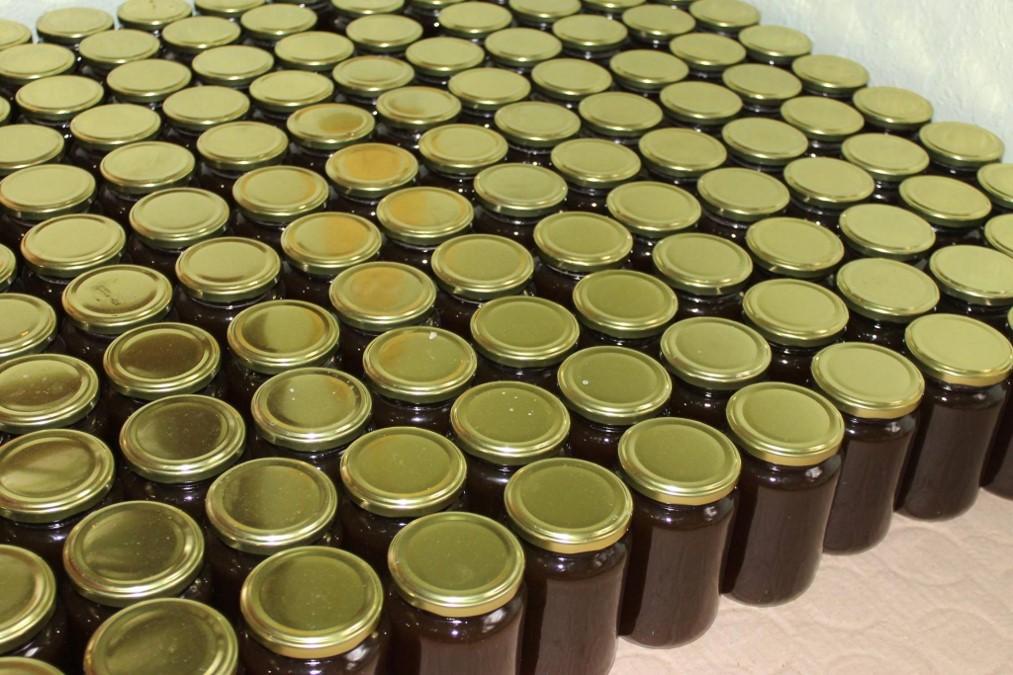
The Best Brand of Honey in Tanzania: Why JAMBO ASALI Leads With Iconic Miombo Honey
Looking for the best brand of honey in Tanzania? For thousands of shoppers, chefs, and health conscious families, the answer is JAMBO ASALI a proudly Tanzanian brand celebrated for its purity, consistency, and its signature Miombo honey. Below is a deep dive into what makes Miombo honey so special, and why JAMBO ASALI has become a market leader at home and abroad.
What Is Miombo Honey?
Miombo refers to the vast, biodiversity-rich Miombo woodlands that stretch across central and western Tanzania. These woodlands are dominated by trees in the Brachystegia, Julbernardia, and Isoberlinia genera, interspersed with wildflowers, medicinal shrubs, and aromatic plants. Bees foraging in this ecosystem produce a distinct, monofloral-leaning honey with a clean profile that Tanzanians and international buyers prize.
Signature Characteristics of Miombo Honey
- Color & Clarity: Light amber to deep gold, often crystal-clear when freshly extracted.
- Aroma: Warm, woody-floral nose with subtle caramel and dried-herb notes.
- Flavor: Balanced sweetness with gentle acidity; hints of toffee, wildflower, and a faint nutty finish.
- Viscosity: Naturally thick and slow-pouring, indicating low moisture and careful post-harvest handling.
- Crystallization: Fine and even crystallization over time, a sign of raw, unadulterated honey.
- Pollen Profile: Rich, diverse pollen spectrum reflecting Miombo flora useful for authenticity checks.
Why this matters: These sensory and physical traits point to well-ripened, raw honey with minimal processing exactly what discerning consumers want.
The Medicinal & Wellness Value of Miombo Honey
While honey is a food (not a medicine), well-documented properties of raw, high-quality honey make Miombo honey a valued traditional remedy:
- Antioxidant Power
Natural polyphenols and flavonoids help neutralize oxidative stress—supporting overall wellness. - Natural Antimicrobial Activity
Low pH, hydrogen peroxide generation, and high osmolarity inhibit many microbes. This underpins traditional use on minor cuts and for soothing sore throats. - Soothing the Throat & Cough
The thick texture coats the throat, offering symptomatic relief for dry coughs and irritation. - Digestive Comfort
Gentle on the stomach for many people; often used traditionally with warm water or herbal infusions. - Wound Care Tradition
In resource-limited settings, clean, raw honey has long been used on small, superficial wounds to maintain a moist barrier and discourage contamination.
Note: These benefits relate to raw, authentic honey and do not replace professional medical care. For chronic or serious conditions, consult a healthcare provider.
Why JAMBO ASALI Is Tanzania’s Leading Honey Brand
1) Uncompromising Purity & Raw Integrity
- Cold-filtered, minimally processed: Preserves enzymes, aroma compounds, and pollen integrity.
- Moisture & HMF control: Tight quality controls to keep moisture low (discouraging fermentation) and HMF at safe levels, indicating freshness.
2) Miombo Sourcing Excellence
- Ecological alignment: Hives strategically placed in clean Miombo corridors far from pesticide-heavy agriculture.
- Seasonal harvest discipline: Bees are given time to fully ripen nectar—leading to thicker, longer-lasting honey with stable flavor.
3) Rigorous Quality Assurance
- Lot-based traceability: Every batch is tracked from apiary to container.
- Lab verification: Routine analyses for moisture, HMF, diastase activity, and adulteration checks (e.g., C-4 sugar tests where applicable).
4) Flavor Consistency You Can Trust
- Sensory standardization: Trained panels and calibrated refractometers ensure consistent taste, texture, and appearance—jar after jar.
5) Ethical Sourcing & Community Impact
- Outgrower partnerships: JAMBO ASALI works with trained beekeepers across Miombo regions, providing fair prices, extension support, and stable market access.
- Livelihoods & conservation: Sustainable honey creates incentives to conserve Miombo woodlands, aligning income with environmental protection.
6) Export-Ready Reliability
- Compliant packaging & documentation: Ready for bulk buyers and repackers, with the certifications and records international buyers expect.
- Supply capacity: The brand’s structured network supports both retail jars and bulk food-grade containers for industry clients.
How to Identify Genuine, High-Quality Miombo Honey
- Read the label: Look for “Miombo” origin and raw/untreated notes.
- Check pour & aroma: Thick flow, warm woody-floral aroma, and a clean finish.
- Expect natural change: Gradual crystallization is normal—and a quality signal.
- Demand traceability: Batch numbers and lab analyses are hallmarks of professional brands like JAMBO ASALI.
FAQs
Q: Does JAMBO ASALI add sugar or heat the honey?
A: No added sugars. Gentle handling avoids overheating, preserving enzymes and aroma.
Q: Why does my honey crystallize?
A: Natural glucose crystals form over time in raw honey. Place the jar in warm (not hot) water to gently reliquefy.
Q: Is Miombo honey good for children?
A: Honey is not recommended for infants under 12 months. For older children and adults, enjoy as part of a balanced diet.
Q: Can I buy in bulk for repacking?
A: Yes—food-grade 28 kg buckets are available for export and repackaging to your market’s preferred formats.
The Verdict
For discerning consumers, chefs, wellness enthusiasts, and international buyers seeking Tanzania’s best honey brand, JAMBO ASALI stands out. Its iconic Miombo honey captures the essence of Tanzania’s woodlands pure, aromatic, and ethically sourced backed by rigorous quality assurance and a mission that supports people and the planet.
Taste the Miombo difference. Choose JAMBO ASALI.

